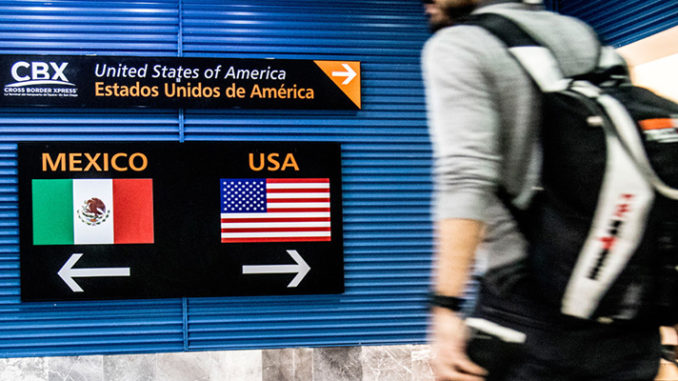
The November election demonstrated that despite their diverse heritage, Hispanic Americans do have one crucial thing in common: their Americanness.
by Mariana Campero
“Hispanic” was a label created in 1970s in the United States as a way to distinguish migrants from Mexico and the Caribbean from other immigrant groups, such as the Irish or the Italians. The activists, politicians, and Spanish-speaking media who encouraged this distinction knew back then that by grouping—into a single category—Cubans in Florida; Puerto Ricans in New York; Salvadorans in Washington, D.C.; and Mexicans in the Southwest, they would get the attention of the federal government. That translated into potential political, economic, and cultural gains.
History is plagued with examples of those in power utilizing race and ethnicity for political gain. In fact, the term “Latin America” was coined in France in the nineteenth century by Napoleon III, who wanted to expand his empire into the Americas and thought that the region, ruled by a Catholic elite of a “Latin race,” would be more keen to ally with “Latin Europe” (France, Spain, Italy, and Portugal) than with “Teutonic-Protestant Europe” or “Anglo-Saxon America.”
In the 2010 census, over half of the Latino population in the United States considered themselves white; however, they are generally considered and portrayed as people of color. “Hispanic” and “Latino” are often interchangeable terms used to identify those from Latin America, and from Spain itself. That being said, both terms encompass an incredibly amorphous community, which includes white immigrants from Europe, Blacks descended from Africans, and native Mesoamericans. Latinos in the United States are either new immigrants or multigeneration families. They identify as Catholic, Evangelical, Protestants, Jewish, or with no religion at all. And more recently, “Latinx” has been adopted by younger generations who eschew the gendered “Latino” or “Latina” terms.
The reality is that Puerto Ricans may not have all that much in common with Mexicans, whose antique civilization dates back more than 1,000 years, who may in turn see Cubans as equally distant from them as Brazilians are—notwithstanding the one-hour flight to Havana from Mexico City versus the 10-hour journey to Sao Paulo.
The November election demonstrated that despite their diverse heritage, Hispanic Americans do have one crucial thing in common: their Americanness. And, according to a Pew Research Center survey, strong majorities of Hispanic registered voters said the economy, health care, and Covid-19 were the most important issues for their vote. These priorities mirrored the responses of the general population.
The importance of immigration to Latino voters also tends to be overstated. Data from 2017 show that 67 percent of Latinos were born in the United States, and almost half have been in the country for more than 21 years, which might explain why immigration reform ranked low among their priorities. It is an issue more important to those whose migration experience is closer in time.
Although President Donald Trump referred to Mexicans as rapists, flippantly tossed toilet paper to Puerto Ricans, and forced Central American children into cages, support for him among Latinos rose from 28 percent in 2016 to 32 percent in 2020, similar to past levels of support for of other Republican presidential nominees.
Before the Covid-19 pandemic, Latino unemployment rates reached a low of 3.9 percent, and the yearly median income for Hispanic households surpassed $50,000 for the first time on record. Latino support for Trump rose with income. Trump won 31 percent of votes from households making less than $50,000 a year, but that figure rose to 40 percent in those making more than $100,000. But the Covid-19 pandemic proved to be far deadlier to Latinos, whose death rates are nearly three times higher than white persons, obliterating with it not only jobs and livelihoods, but probably some support for Trump as well.
Trump’s gains among Latinos were hardly universal, but he won big in Florida, especially with voters who trace their roots to Cuba and other countries with histories of socialist dictatorships. And, this election, he did very well among rural Latinos. “If Trump is the candidate that people in rural America identify with more, that’s going to work with Latinos just like it works with other group,” said Bernard Fraga, a political science professor at Emory University who studies racial and ethnic politics. According to a poll by Equis Research, U.S.-born Mexican American men without college degrees leaned toward Donald Trump, mirroring the voting trajectory that non-college-educated white men followed in 2016.
As historian Geraldo Cadalva from Northwestern University has said, “Latinos aren’t naturally liberal or conservative.” And, although President-elect Biden won the Latino vote by more than 60 percent, he underperformed compared to Hillary Clinton’s results in 2016. The Democratic margins among Latinos dropped from 38 to 33 percent in 2020, the lowest since the 2004 elections.
The fact is that the Latino population in the United States has grown sixfold since 1970, surpassing 61 million in 2020. And more than 32 million people were eligible to vote in 2020, representing the largest non-white electorate group. Any politician who tries to launch his or her political career by pigeonholing the Latino population into a single Spanish-speaking, light-brown, aggravated, minority race ignores the population’s diversity, and might even hurt both their candidacy and the Latino community. New research conducted by Ian Haney Lopez, a law professor at the University of California, Berkeley, found that half of Latinos do not want to see themselves as a subordinated group. They would much rather become part of the mainstream, as the Italian, Irish, or Jewish communities did not long ago. If so, their votes will likely play along the same age, gender, religion, economic, and other social political lines as their fellow Americans.
Mariana Campero is a senior associate (non-resident) with the Americas Program at the Center for Strategic and International Studies (CSIS) in Washington, D.C.



